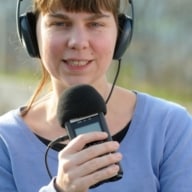The Silent Rise of the Podcast in the Low Countries
The podcast, a medium that teaches us to really listen again, is extremely popular in the Anglo-Saxon world. What about its popularity in Flanders and the Netherlands, now that both public broadcasters and major news brands focus on podcasting? Audio storyteller Eva Moeraert gives a state of affairs.
In 2005, Apple iTunes was the first to launch the term ‘podcast’, which suddenly became the American word of the year. Real podcasts as we know them today, hadn’t yet been invented. You could only listen to a few well-know radio shows that were broadcasted online. In the meantime, pod-cast has become the collective name for all online audio. Most podcast channels are made specifically for listening on a smartphone. In ten years, the number of users has grown spectacularly. This year, Apple counts 550,000 different podcasts available in hundred distinct languages.
The main reason for the immense success of the medium is its portability. You can listen to a podcast anywhere: in the train, during traffic jams, in the gym, when washing dishes, or in the bath. In terms of subjects, there is something for everyone. Type in any subject on Google, add ‘+ podcast’ and you’re guaranteed to hear a wine podcast or a podcast about agriculture vehicles.
Yet, the big difference between radio and podcasting is that people tend to listen to it in a different way. You will pay more attention to content and depth in podcasts. Also, you’ll be addressed more personally, which creates a very deep relationship with the voice inside your head.
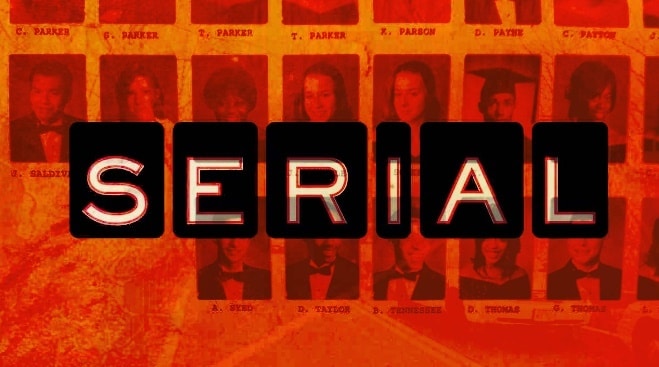
Hanging on Sarah Koenig's every word
In the United States, Serial is the best known podcast. It consists of twelve one-hour episodes about a murder case from twenty years ago. For twelve weeks, America was hanging on Sarah Koenig’s every word, and soon the rest of the world followed. Yet, the podcasts Radiolab, Planet Money, and This American Lifemade the genre mature. One by one, these are podcasts that have a large editorial team behind them to deliver a quality, narrative audio.
Canada and Great Britain have also produced impressive online audio in recent years. Death In Ice Valley, a collaboration between BBC and NRK, is a podcast in which the narrative and the listeners investigate the disappearance of a British woman in Norway. In Heavyweight, one of the most successful podcasts in Canada, presenter Jonathan Goldstein looks for solution to the small problems of life.
It is clear that the podcasts has become an integral part of the Anglo-Saxon market. With podcasts generating advertising revenue, podcast producers can easily make a profession out of their work.
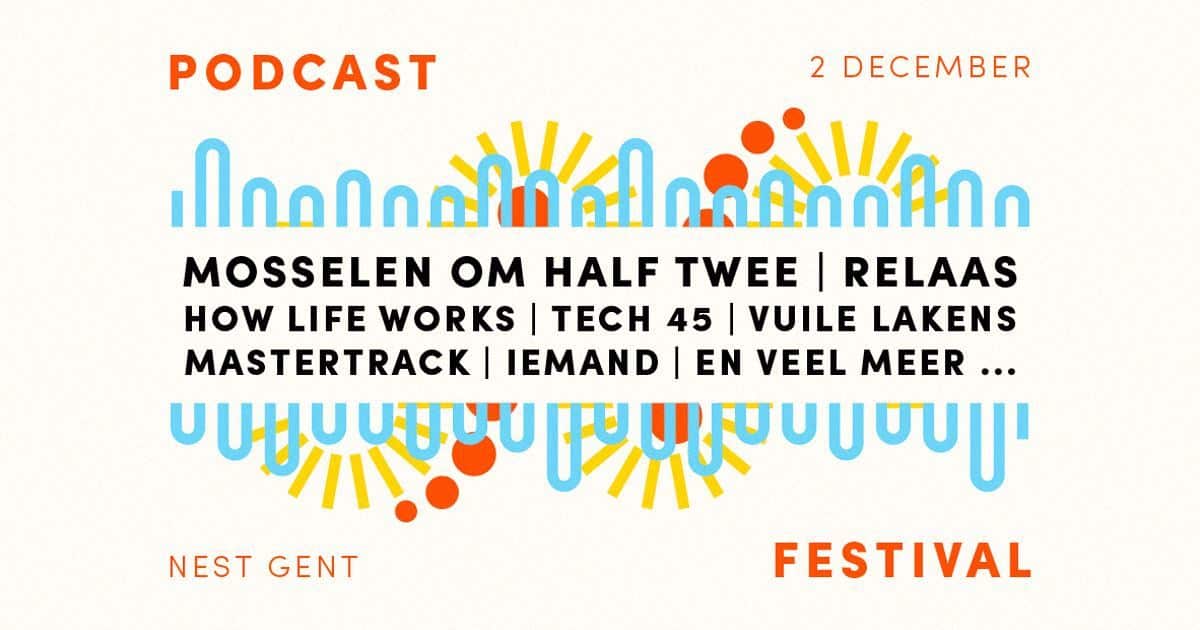
The First podcast festivals
What about the podcast market in the Low Countries? In June 2016, podcast producer and expert Pieter Blomme was one of the organisers of the first podcast festival in Flanders. “The few podcast producers who were there joined forces. We treated our listeners to a live podcast event and it was a great success.” In December 2017 a second edition was held. “Because so many new podcasts had been added within a year, we organized a podcast market at the festival. At this market, listeners could meet the producers and get to know new podcasts. Within a year, the question ‘What is a podcast?’ changed to ‘Which podcast would I like to listen to?’.”
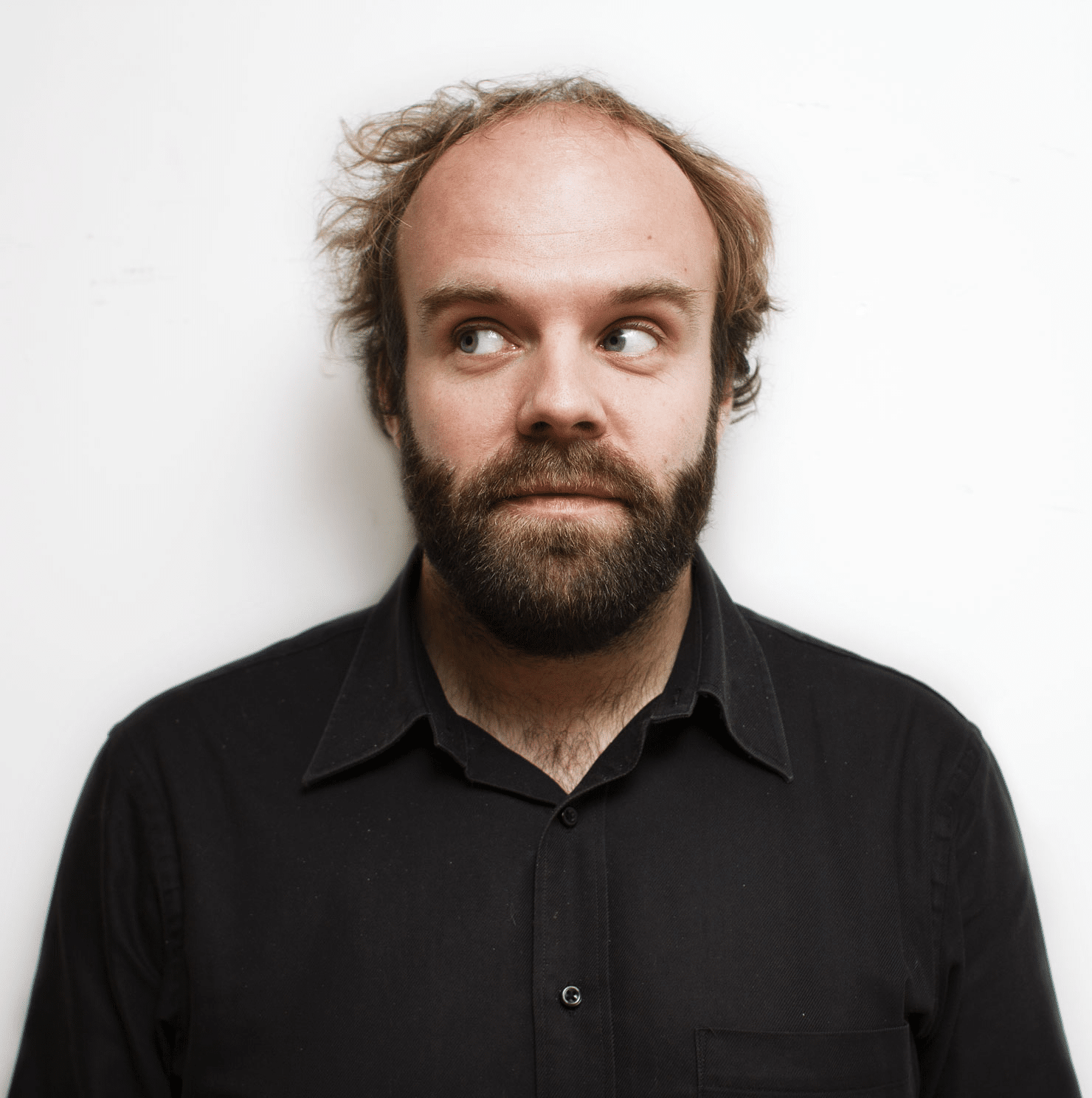 Pieter Blomme (Relaas)
Pieter Blomme (Relaas)© Gieljan Van Goethem
This shift is largely due to an information campaign by VRT, the Flanders radio-and television broadcast, and the launch of the podcasts Iemand, Mastertrack and Wanderland. Although there have been no new episodes since January 2018, Iemand remains one of the best-listened podcasts in Flanders. In each episode, Radio1 journalists Ward Bogaert and Philip Heymans narrate the story of one person: a street musician who once won the Queen Elizabeth violin competition or an ex-gangster who has trouble re-integrating into society.
Other Radio1 programmes such as Interne Keuken en Touché are also offered as podcasts and prove that programmes with a lot of content and depth work well in the personal podcast format. The success of the series by the classic radio station Klara also shows that the audience is looking for longer, in-depth pieces of audio.
Comedians in front of the microphone
Relaas is Pieter Blomme’s independent podcast; it has loyal fans throughout the whole of Flanders. It’s the Flemish counterpart of the Dutch Echt Gebeurd, a podcast with true stories that are told by the people who experienced them themselves. Already 400,000 people listened to such a story, that’s 5,000 weekly. “The recipe of our success is that we make a broad podcast, because stories are universal,” says Blomme. “Many podcasts are made for nice target groups, but we appeal to many layers of the population.” The team behind Relaas perfectly understands how important it is to involve your audience. Every month, people can attend a live listening evening, in which the stories used for the podcasts are told on stage.
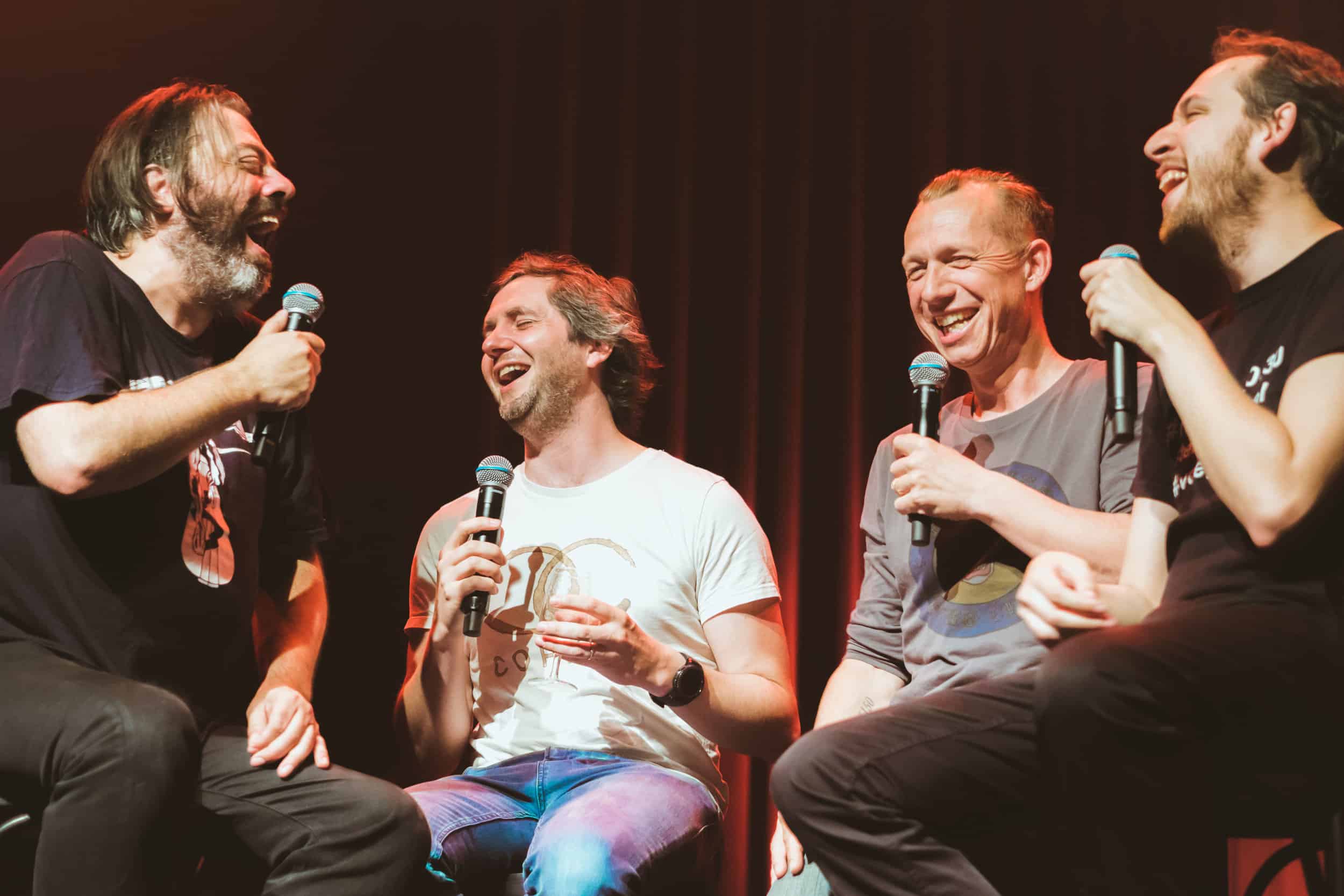 Mosselen om half twee
Mosselen om half twee© KREW
In English-speaking areas also, we see that comedy and podcasts are compatible. In Flanders, comedians are active in the audio world too. Mosselen om half tweeby Xander De Rijcke was one of the first real podcasts and could count on loyal audience until its three hundredth episode. A few spin-offs also in the top ten of most-listened Flemish podcasts that emerged from this show are: Welcome to the AA by fellow-comedian Alex Agnew, and Nerdland by Lieven Scheire.
Things are going fast in the Netherlands
What if your demented grandmother suddenly starts telling stories all day long about a certain Bob, while your grandfather has a different name? That is the starting point of a six-part podcast series, produced by audio collective Schik: one Dutch and two Flemish podcast producers. What Serial had accomplished in the United States, the VPRO podcast BOB brought to air in 2017 in the Low Countries. It put the medium on the map and podcasts became appealing to a suddenly much larger audience.
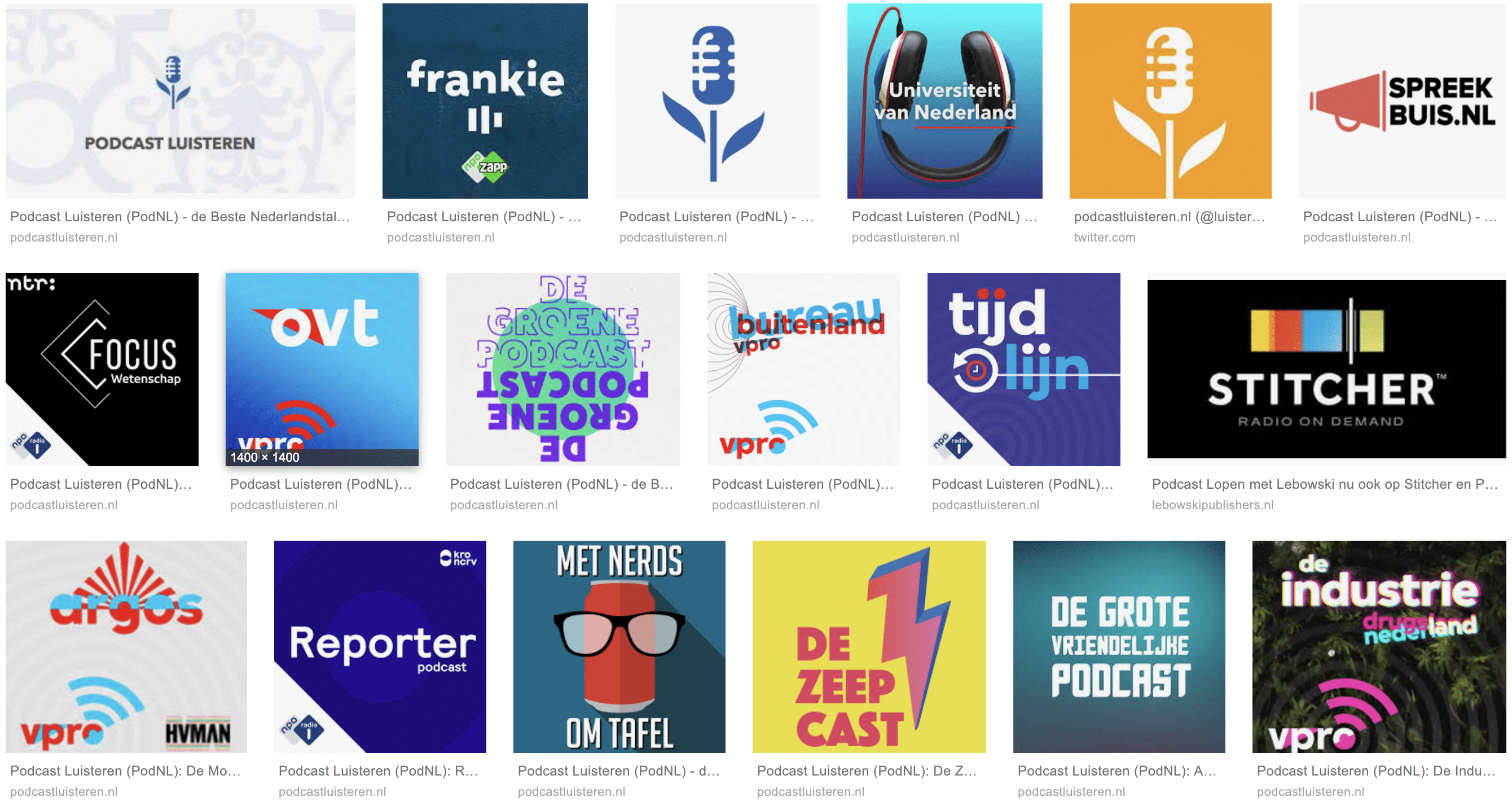
In fact, in recent years, the Netherlands has been a lot more productive than Flanders when it comes to producing podcasts. Two out of three Dutch people listen to a podcast or online radio station at least once a month, according to research conducted by Skoep Nieuws and Spreekbuis.nl. Richard den Haring collects good Dutch podcasts on podcastluisteren.nl (PodNL): “Things are growing fast in the Netherlands at the moment. Not only BOB, but also new brands such as BNR and nu.nl are promoting the idea of podcasts.
In the monthly top forty by PodNL, BOB takes the lead, together with Willem Podcast, a podcast that reports on the case of the Dutch criminal Willem Holleeder. “People like listening to stories about court cases, but they also enjoy listening to postponed radio broadcasts as podcasts,” notes den Haring.
News podcasts
A recent study by Reuters Institute for the Study of Journalism showed that particularly young people know how to find the podcast App on their smartphone. For an older target group, downloading the app and subscribing to various channels is a step too far. According to Richard den Haring, addressing broader target groups is the challenge of the future. “We have noticed that this older target group much prefers to visit our website and listen via their laptops, taking the easy way out.” Podcast producer Chris Bajema responded to this by making a video in which he explains to his mother how she can subscribe to his popular podcast Man met de microfoon, a podcast with true and slightly fictionalised stories from a Dutch neighbourhood.
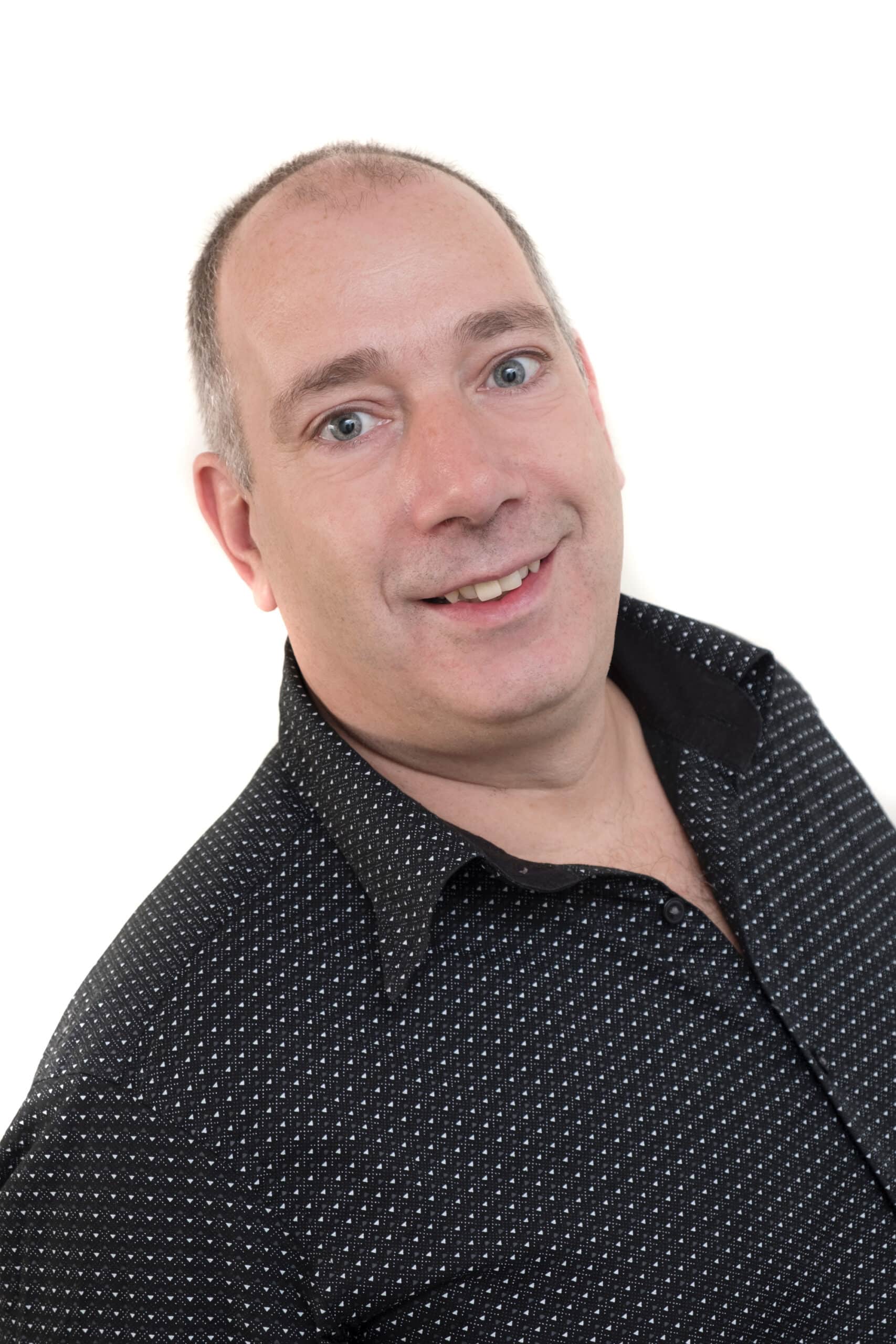 Richard den Haring (podcastluisteren.nl)
Richard den Haring (podcastluisteren.nl)© John Brussel
The same Reuters-study also reported that young people like to consume their news via podcasts. This explains the great success of The Daily, which is the daily news podcast of The New York Times, but also of nu.nl, the BNR podcasts and the podcasts of De Correspondent in the Netherlands.
At VRT, we also saw many new episodes appear in the VRT-NWS podcast in 2018. For instance, journalist Björn Soenens pointed out the latest developments in the US and war reporter Rudi Vranckx explained more about IS. Not only audiovisual news brands have been following these developments. The Flemish newspaper De Standaard has been producing rich podcast content and stories since 2018. Similar to the New York Times, they have also used their journalists as experts. The four podcasts of De Standaard have now been listened to about 500,000 times.
The search for income
Despite some great achievements, Flanders remains less significant than the Netherlands when it comes to podcasts. In Flanders, podcasts haven’t been much of a success yet. According to podcast expert Pieter Blomme there are two reasons for this: “On the one hand, the Flemish media landscape looks completely different with many more broadcasters and smaller production companies, and thus more platforms and opportunities. On the other hand, public broadcasting in Flanders doesn’t want to invest in podcasts, and certainly not in podcasts produced by independent producers.”
Similarly, Lucas Derycke from het Klankverbond, the recently established interest group for audio producers in Flanders, remarks: “The VRT has cancelled all longer-lasting audio pieces from their program. Radio documentary or radio plays are now only covered in podcasts, which are mainly produced by their own staff.” This means that a lot of independent podcast producers seek money from funds and Dutch broadcasters. In 2019, for instance, three Flemish productions will be part of VPRO-podcasts.
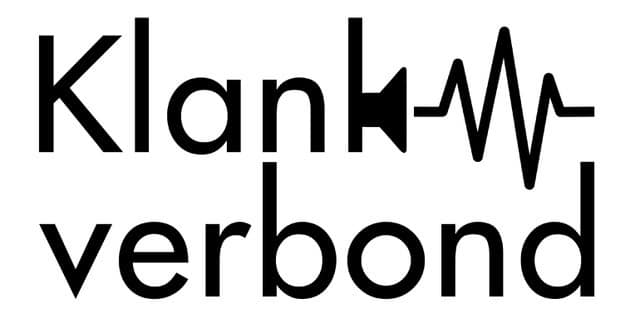
The Flemish public broadcaster knows from research that Flemish listeners mainly want to hear live radio, and that only 1.8 per cent of the audience listens to podcasts. This small percentage is not enough to inject money into it, according to VRT. Partly because of this, the podcast market doesn’t operate well in Flanders. Every month, new, small, nice-podcasts emerge – but real quality, well-made series, remain absent as producers do not know how to generate revenue from it.
Pieter Blomme from Relaas believes we should not despair, “similarly to the Netherlands, we need to organize some sort of advertising agency for podcasts.” Dag en Nacht Media is an Amsterdam-based production company that clusters podcasts and generates revenue for producers through sponsorship.
Popular podcasts such as Ik ken iemand die and Echt Gebeurd are available through the Dag en Nacht-platform and benefit from it. Both the NPO fund and the initiative Narrative Journalism Netherlands support podcast initiatives. In Flanders, the funds for audio producers are much more limited. The Flanders Audiovisual Fund does not accept audio projects for the time being. The brand-new Flemish Journalism Fund supported two podcast projects this year.
The good news is that, in the future, things can only get better. From the English-speaking markets, we learn that there is much more to the medium than we are currently getting out of it. A large part of the Flemish and Dutch population has yet to discover the podcast. What will happen when everyone has a smart speaker on his or her kitchen table that produces audio only? Alexa will (hopefully) not be able to keep up with the influx of Dutch podcasts.

